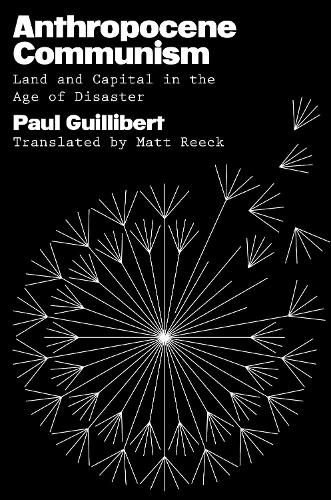Readings Newsletter
Become a Readings Member to make your shopping experience even easier.
Sign in or sign up for free!
You’re not far away from qualifying for FREE standard shipping within Australia
You’ve qualified for FREE standard shipping within Australia
The cart is loading…






In the age of climate change, is the communist hypothesis still relevant? Only a renewed communism, a communism for life - or a "biocommunism" - will enable us to move beyond the ecological crisis of late capitalism. Based on an original reading of founding texts of Marxism, the author launches a critique of the "ontological turn" in ecology. Against Bruno Latour or Donna Haraway, he develops a philosophy for green Marxism based on the centrality of land ownership. The history of societies and the history of nature are intertwined precisely because they have singular trajectories. In a new reading of Karl Marx's exchanges with the populist 'terrorists' in Russia, the cultural studies of Raymond Williams and the Marxism of Jose Carlos Mariategui's and Ernst Bloch's attachment to the land, the author develops a philosophical naturalism in which human belonging to the Earth is transformed by the ways in which societies appropriate nature. A political strategy is derived from this new philosophy of history: ecological dual power, "ecological soviets", is the communist strategy for getting out of the Anthropocene. Communism must become environmentalism, and political ecology can only become truly revolutionary if it becomes communist.
$9.00 standard shipping within Australia
FREE standard shipping within Australia for orders over $100.00
Express & International shipping calculated at checkout
In the age of climate change, is the communist hypothesis still relevant? Only a renewed communism, a communism for life - or a "biocommunism" - will enable us to move beyond the ecological crisis of late capitalism. Based on an original reading of founding texts of Marxism, the author launches a critique of the "ontological turn" in ecology. Against Bruno Latour or Donna Haraway, he develops a philosophy for green Marxism based on the centrality of land ownership. The history of societies and the history of nature are intertwined precisely because they have singular trajectories. In a new reading of Karl Marx's exchanges with the populist 'terrorists' in Russia, the cultural studies of Raymond Williams and the Marxism of Jose Carlos Mariategui's and Ernst Bloch's attachment to the land, the author develops a philosophical naturalism in which human belonging to the Earth is transformed by the ways in which societies appropriate nature. A political strategy is derived from this new philosophy of history: ecological dual power, "ecological soviets", is the communist strategy for getting out of the Anthropocene. Communism must become environmentalism, and political ecology can only become truly revolutionary if it becomes communist.